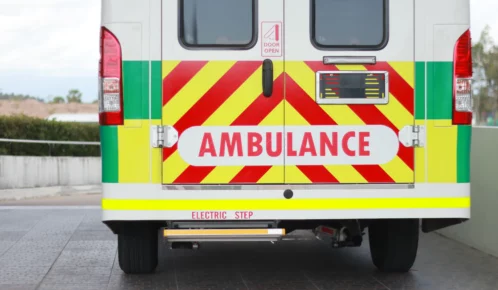Medication errors, like incorrect drug combinations, administering the wrong medication, and improper dosages, can have negative effects, such as adverse drug reactions and disruption of oxygen delivery, which can lead to brain damage. Medication-related brain injuries can have life-altering consequences, making it crucial for victims and their families to take legal action to seek justice and compensation.
Table of Contents

The Chicago medical malpractice lawyers at Ankin Law can help you seek compensation for damages resulting from medication errors. Call 312-600-0000 for a free case evaluation.
Understanding How Medication Errors Can Result in Brain Damage
Medications treat a variety of injuries and illnesses. However, they can be a blessing and a curse. While medications can be helpful and life-saving, they can be dangerous when administered incorrectly due to the negligence of a doctor, pharmacist, anesthesiologist, nurse, or other healthcare provider.
Medication errors harm at least 1.5 million people every year in the United States. According to America’s Health Rankings 2024 Annual Report, the number of deaths due to drug injury in Illinois is 30.6 per 100,000 population. When medication mishaps happen, patients can sustain severe and permanent injuries, including brain damage.
Wrong Dosage
Brain injuries can be a side effect of drugs taken in dangerous dosages. Incorrect dosages of powerful drugs can cause severe brain damage. Medications can be dangerous toxins when they accumulate in your body because of overdoses. They could adversely affect the brain, liver, and other organs.
For example, receiving too much opioid medication could decrease your heart rate and induce respiratory depression, which can cause a reduction in oxygen supply to your brain (hypoxia). When oxygen deprivation lasts long enough, seizures, comas, and brain death could occur.
Children are more vulnerable to harm from medication overdoses due to their smaller body size and physiological immaturity. Negligence during childbirth or treatment can result in dosage errors that lead to brain injuries and other complications.
Incorrect Medications
Incorrect medications are also among the types of prescription errors you can sue for in Illinois. Prescription or administration of the wrong drug can cause brain injuries. Depending on the type of drug, the wrong medication can cause disruptions to the delivery of oxygen to the brain, brain bleeds, and other brain injuries.
Misdiagnosis, delayed diagnosis, and misidentification of patients can also lead to a patient being given the wrong drug, which eventually affects brain function. For example, misdiagnosis of acute conditions like stroke, pulmonary embolism, and heart attack can lead to treatment with incorrect medication. With incorrect treatment, these conditions can result in brain damage. People taking anticoagulant drugs could suffer a severe stroke and brain damage if their medication is stopped or changed incorrectly.
Problems With Anesthesia
Some medication errors that cause severe brain damage occur during surgical procedures. Anesthesiologists administer medications at different intervals during surgeries. Patients can suffer brain damage when anesthesiologists overmedicate them with too much anesthesia. Giving the wrong type of anesthesia, such as a spinal anesthetic instead of a general anesthetic, can cause problems like a patient’s heart stopping and oxygen deprivation, which could lead to irreversible brain damage.
Adverse Drug Interactions
Sometimes, doctors prescribe a drug without considering an individual’s medical history. The prescribed medicine can interact negatively with another drug the patient is already taking. The resulting adverse reactions can disrupt normal body processes and cause chemical imbalances and neurotoxicity, having a toxic effect on the brain.
The Legal Options for Victims of Medication-Related Brain Injuries in Chicago
Brain injuries from medical errors can affect all aspects of a victim’s life. The physical, emotional, and cognitive effects of the injuries can impact the victim’s ability to communicate, perform daily tasks, and hold down a job. The effects and resulting losses take a heavy emotional and financial toll on victims and their families.
The injured parties or their families can take legal action for medical malpractice with the help of medication error lawyers. Studies show that most malpractice claims are caused by missed diagnoses and medication errors. Winning a medical malpractice case in Illinois requires demonstrating the at-fault party’s medical negligence. To do so, you must prove that these four legal elements exist:
- Duty of care: To establish medical malpractice, the healthcare provider must have owed the victim a duty of care. Doctors, nurses, surgeons, and other healthcare professionals owe patients a duty of care. The duty requires the professionals to provide care that meets the appropriate standard, as would another professional in the same field and geographical location in similar circumstances. Medical records can help prove the existence of a provider-patient relationship and establish this duty of care.
- Breach of duty: You must show that the medical provider breached that duty, for example, by administering an improper dosage.
- Causation: Medication error claims require proving that the medical provider’s breach of duty caused the patient’s injury.
- Damages: For your medical malpractice claim to be valid, you must prove you suffered damages due to the injury, such as medical expenses, lost income, and pain and suffering. You won’t have a viable medical malpractice case if the medication error didn’t cause any harm.
Most medical malpractice cases are resolved through reaching a settlement agreement with the insurance company representing the negligent healthcare professional or facility. If a fair settlement can’t be reached, you may have to take your case to a civil court trial.
Victims of medication-related brain injuries can seek compensation for economic damages like medical expenses, lost wages, and ongoing medical treatment and rehabilitation, and non-economic damages like pain and suffering, emotional distress, and loss of enjoyment of life.
In Chicago and throughout Illinois, a medical malpractice case against a doctor, nurse, anesthesiologist, hospital, or other negligent healthcare provider must generally be filed within two years from the date the patient discovered or reasonably should’ve discovered the injury resulted from medical malpractice. However, some exceptions can extend or shorten the time limit. As a result, it’s best to consult a medical malpractice lawyer as soon as possible if you have a medication error case.
How an Attorney Can Help You Pursue Compensation for Medication Errors
When a medication error occurs, you or your loved one could have been a victim of medical malpractice. Doctors could take months before realizing the mistake and resulting injuries. It’s a good idea to seek a legal opinion about such a situation. A medical malpractice attorney can review your case and establish whether medical malpractice occurred, the applicable statutory time limits, and address questions and concerns you may have, such as, “What is the process for filing a medication error lawsuit?” An attorney can guide you through the process of filing a medical malpractice claim.
Medication errors can happen at multiple stages, including during pharmacy dispensing, prescription, and administration by a medical professional. Identifying who caused the error can be challenging. Doctors, pharmacists, nurses, anesthesiologists, hospitals, clinics, and even drug manufacturers can be held liable when medication errors cause harm. A medical malpractice lawyer will help you identify the party to hold accountable for the harm you suffered.
A medication error lawyer will investigate your case, determine how the medication mistake occurred, gather evidence, and build a strong case against the liable medical professional or institution. Your lawyer will determine the damages you’re entitled to seek and assign the right monetary value to them. He or she can then negotiate a fair settlement with the insurance provider to secure compensation that covers all your losses. If a fair settlement can’t be reached, your lawyer will file a lawsuit and represent you in court. An experienced lawyer will have the necessary resources to hire experts who can testify at the trial.
If you or a family member suffered injuries due to a medication error, the Chicago medical malpractice attorneys at Ankin Law can help. With more than 150 years of combined experience, we have the necessary skills, resources, and expertise to get the maximum compensation for your injuries on your behalf. We handle cases on a contingency basis, so you’ll only pay attorney fees if we win your case. Contact us today for a free consultation to discuss your case.



